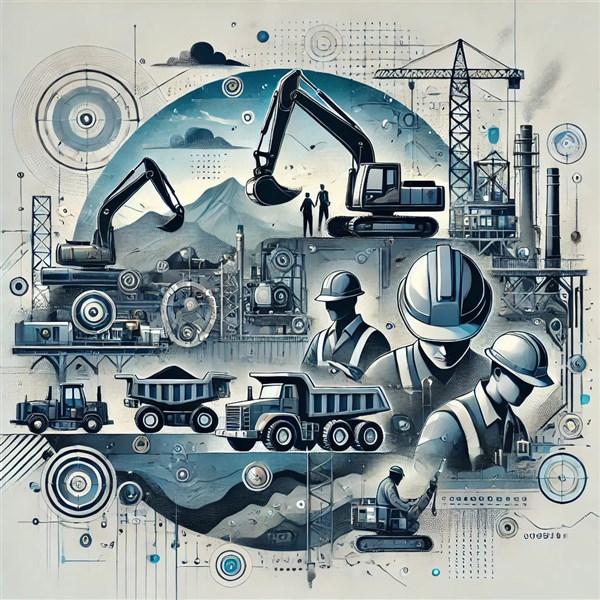Unable to find what you're searching for?
We're here to help you find it
Mining engineering is a specialized branch of engineering that focuses on the extraction, processing, and management of minerals and resources from the Earth. It plays a crucial role in various industries, including construction, manufacturing, and energy production. If you’re considering a career in mining engineering, it’s essential to understand the core skills you will develop throughout your training.
A Mining Engineering Traning provides students with a blend of theoretical knowledge and practical skills required to design, develop, and operate safe and efficient mines. The program covers various aspects, including mine planning, rock mechanics, mineral processing, and environmental management.
In this blog, we will explore the essential skills that a mining engineering course imparts and how they help professionals build a successful career in this dynamic field.
One of the most critical skills that students learn in a mining engineering course is mine planning and design. Mining engineers must determine the most effective and economically viable way to extract minerals while minimizing waste and environmental impact.
Key Learning Areas:
A well-planned mine ensures maximum productivity, cost-effectiveness, and safety, making this skill a fundamental part of mining engineering training.
Mining engineers must have a solid understanding of rock mechanics and geotechnical engineering to ensure mine stability and prevent collapses or failures.
Key Learning Areas:
This skill helps engineers design safe and sustainable mining operations while ensuring the structural integrity of tunnels and open pits.
A mining engineering course also focuses on mineral processing—the science of extracting valuable minerals from ore. Efficient mineral extraction ensures that raw materials are processed with minimal waste and maximum recovery.
Key Learning Areas:
Students gain expertise in handling ores efficiently, maximizing output, and reducing environmental impact.
Safety is paramount in mining, given the hazardous working conditions. A mining engineering course equips students with knowledge of mine safety regulations and risk assessment techniques.
Key Learning Areas:
Mining engineers are responsible for ensuring worker safety, reducing accidents, and implementing effective risk management strategies.
Modern mining operations focus on sustainable and environmentally responsible mining practices. A mining engineering program teaches students how to balance resource extraction with environmental conservation.
Key Learning Areas:
These skills help engineers develop eco-friendly mining operations while meeting global sustainability standards.
The mining industry is undergoing a digital transformation, with automation playing a crucial role in modern mining operations. Mining engineers must be proficient in using advanced technologies to enhance efficiency and productivity.
Key Learning Areas:
With the rise of Industry 4.0 in mining, engineers who understand automation and digitalization have a competitive edge in the job market.
Mining projects require large teams and significant investment. Therefore, mining engineers must develop strong project management and leadership skills to oversee operations effectively.
Key Learning Areas:
Effective leadership in mining ensures that projects are completed on time, within budget, and in compliance with regulations.
Mining engineers often work with government agencies, stakeholders, and other engineering teams. Thus, clear communication and reporting skills are vital.
Key Learning Areas:
These skills enable mining engineers to convey technical information accurately and make informed decisions.
Conclusion
A Mining Engineering Program equips students with a diverse range of skills that are essential for a successful career in the mining industry. From mine planning and safety to automation and sustainability, the skills learned in this field help engineers contribute to efficient and responsible resource extraction.
As the mining sector continues to evolve with technological advancements and sustainability goals, professionals with expertise in digital mining, environmental conservation, and risk management will be in high demand.
Whether you’re an aspiring mining engineer or looking to enhance your skills, enrolling in a Mining Engineering Course can open doors to exciting career opportunities in a globally significant industry.
By enrolling in a Mining Engineering Program at Koenig Solutions, a leading IT training company, students can gain these essential skills and more. They offer a comprehensive curriculum, expert faculty, and practical experience that prepares students for a successful career in mining engineering. For more information, visit Koenig Solutions.

Aarav Goel has top education industry knowledge with 4 years of experience. Being a passionate blogger also does blogging on the technology niche.










